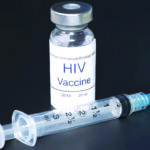Clinical Trials 101: What You Need to Know About Medical Research

What is a clinical trial?
A clinical trial is a carefully designed research study conducted with human participants to evaluate the safety and effectiveness of medical treatments, interventions, drugs, or medical devices. These trials are a fundamental part of the process of bringing new healthcare interventions from the laboratory and early testing phases to widespread use in clinical practice.
Clinical trials are critical for advancing medical knowledge and improving patient care. Here are some key characteristics of clinical trials:
1. Purpose: Clinical trials are conducted to answer specific research questions, such as whether a new drug is safe and effective, how well a medical device works, or whether a particular treatment is more effective than existing options.
2. Phases: Clinical trials typically occur in 4 phases:
• Phase 1: Initial testing in a small group of healthy volunteers to assess safety and dosage.
• Phase 2: Testing in a larger group to evaluate effectiveness and side effects.
• Phase 3: Large-scale testing to confirm results and gather more information about risks and benefits.
• Phase 4: Post-market surveillance after approval for monitoring long-term safety and effectiveness.
3. Randomization: Many clinical trials use randomization to assign participants to different treatment groups. This helps reduce bias and ensures that the results are reliable and can be generalized to a broader population.
4. Control Groups: Most trials have a control group that receives a placebo (a harmless, inactive substance) or standard treatment to compare with the experimental group receiving the new treatment. This helps researchers determine whether the new treatment is more effective.
5. Informed Consent: Participants in clinical trials must provide informed consent, which means they are fully informed about the trial’s purpose, procedures, potential risks, and benefits, and they voluntarily agree to participate.
6. Ethical Guidelines: Clinical trials are conducted in adherence to strict ethical and regulatory guidelines to ensure the safety and rights of participants.
7. Data Collection: Researchers collect data on the participants’ health and treatment outcomes to assess the intervention’s effectiveness and safety.
8. Endpoint: Clinical trials typically have a specific endpoint or outcome that they are trying to measure. This could be a reduction in disease symptoms, improved survival rates, or other relevant health markers.
9. Monitoring: Independent boards or committees often monitor clinical trials to ensure they are conducted safely and ethically.
10. Publication: The results of clinical trials are often published in scientific journals to inform the medical community and the public about the outcomes.
Clinical trials play a crucial role in advancing medical knowledge, developing new treatments, and improving the quality of healthcare. They are conducted for a wide range of medical conditions, including cancer, infectious diseases, chronic illnesses, and many others. Patients who participate in clinical trials can contribute to the development of new and better healthcare options while receiving access to cutting-edge treatments.
This Video by Penn Medicine’s YouTube channel provides insights into why clinical trials are conducted
Is there a difference between a clinical trial and a clinical study?
Yes, there is a difference between a clinical trial and a clinical study, although the terms are often used interchangeably. Here’s how they differ:
1. Clinical Study:
• A clinical study is a broader term that encompasses a variety of research investigations involving human participants.
• It can include both observational studies and interventional trials.
• Observational studies, like cohort studies or case-control studies, do not involve any intervention or treatment. They primarily involve observing and analyzing data related to health outcomes, exposures, or risk factors.
• Clinical studies can involve a range of research objectives, such as understanding disease prevalence, risk factors, disease progression, or treatment outcomes.
• Clinical studies can also encompass various designs, including cross-sectional studies, longitudinal studies, and case series, which do not involve the testing of a new intervention.
2. Clinical Trial:
• A clinical trial is a specific type of clinical study that focuses on evaluating the safety and efficacy of a medical intervention, such as a new drug, medical device, treatment, or therapeutic approach.
• Clinical trials are interventional studies, meaning that they involve the administration of a particular treatment or intervention to participants.
• They are typically designed to answer a specific research question and involve comparing the effects of the experimental treatment to a control group (usually receiving a placebo or standard treatment).
• Clinical trials follow a structured protocol with predefined endpoints and often go through multiple phases (Phase 1, 2, 3, and sometimes Phase 4) to assess different aspects of the intervention, including safety, dosing, and efficacy.
In summary, all clinical trials are clinical studies, but not all clinical studies are clinical trials. Clinical studies can encompass a wide range of research activities related to health and healthcare, while clinical trials are a subset of clinical studies specifically focused on testing and evaluating new medical interventions in a controlled and systematic manner. The key distinction is whether an intervention is being tested or not in the study.
Who regulates clinical trials?
Clinical trials are regulated by various government agencies and regulatory bodies in different countries. The specific agency responsible for regulating clinical trials can vary from one country to another, but there are some common regulatory bodies and principles that apply in many parts of the world. Here are a few of the major regulatory bodies involved in clinical trial oversight:
1. Food and Drug Administration (FDA) in the United States: The FDA is responsible for regulating clinical trials involving drugs, biologics, and medical devices in the United States. It reviews and approves clinical trial protocols, monitors the conduct of trials, and assesses the safety and efficacy of investigational products.
2. European Medicines Agency (EMA) in the European Union: The EMA is responsible for regulating clinical trials of medicinal products within the European Union. It sets the regulatory framework and evaluates trial data to grant marketing authorization for new drugs.
3. Health Canada: Health Canada is the regulatory authority responsible for overseeing clinical trials and approving new drugs and medical devices in Canada.
4. Pharmaceuticals and Medical Devices Agency (PMDA) in Japan: PMDA regulates clinical trials and assesses the safety and efficacy of pharmaceuticals and medical devices in Japan.
5. Therapeutic Goods Administration (TGA) in Australia: TGA is responsible for regulating clinical trials and approving therapeutic goods, including drugs and medical devices, in Australia.
6. World Health Organization (WHO): WHO provides guidelines and recommendations for the ethical conduct of clinical trials on a global scale. It also works with member countries to ensure that trials meet international standards.
7. Institutional Review Boards (IRBs) or Ethics Committees: Many countries require that clinical trials be reviewed and approved by independent IRBs or ethics committees. These committees assess the ethical and safety aspects of clinical trial protocols and protect the rights and well-being of trial participants.
8. National Regulatory Agencies: In addition to the above, many countries have their own national regulatory agencies responsible for overseeing clinical trials and ensuring compliance with local regulations.
These regulatory bodies and agencies play a crucial role in ensuring the safety, ethics, and quality of clinical trials. They set standards and guidelines for trial conduct, review trial protocols, inspect trial sites, and monitor data to make informed decisions about the approval and regulation of new medical interventions. Compliance with the regulations and guidelines set by these authorities is essential for the successful conduct of clinical trials.
How to join a clinical trial
Joining a clinical trial typically involves several steps, and it’s important to make an informed decision about participation. Here are the general steps to consider if you’re interested in joining a clinical trial:
1. Research and Information Gathering:
• Begin by researching clinical trials related to your medical condition or area of interest. You can use resources such as ClinicalTrials.gov (in the United States), which provides a comprehensive database of clinical trials worldwide.
• Consult with your healthcare provider to discuss your interest in participating in a clinical trial. They can provide valuable guidance and may be aware of relevant trials.
2. Assessment of Eligibility:
• Each clinical trial has specific eligibility criteria that determine who can participate. These criteria are based on factors like age, gender, medical history, and the stage of your condition.
• Your healthcare provider or the trial’s research team will help assess whether you meet these eligibility criteria.
3. Informed Consent:
• Before you can join a clinical trial, you’ll need to review and sign an informed consent form. This document outlines the trial’s purpose, procedures, potential risks, benefits, and your rights as a participant.
• Take your time to read and understand the informed consent form. You can ask questions and seek clarification from the research team.
4. Screening and Enrollment:
• If you meet the eligibility criteria and decide to participate, you’ll undergo a screening process. This may include medical tests, assessments, and interviews to ensure you are a suitable candidate for the trial.
• Once you pass the screening, you’ll officially enroll in the trial. The research team will provide you with a schedule of study visits and interventions.
5. Participation in the Trial:
• Follow the trial protocol as directed by the research team. This may involve receiving the investigational treatment, undergoing tests, and adhering to specific procedures.
• Keep detailed records of your experiences, including any side effects, symptoms, or changes in your health.
6. Ongoing Monitoring and Follow-Up:
• Throughout the trial, you’ll be regularly monitored by the research team. Be sure to attend all scheduled visits and follow the instructions provided.
• Report any changes in your health or any concerns to the research team.
7. End of the Trial:
• The trial will have a defined endpoint, at which time you may complete your participation. The research team will inform you of the trial’s results and any follow-up care that may be necessary.
It’s important to note that participation in a clinical trial is voluntary. You have the right to withdraw from the trial at any time without penalty. Additionally, you should discuss your participation in a clinical trial with your healthcare provider, and consider the potential risks and benefits before making a decision.
Keep in mind that clinical trials can offer access to cutting-edge treatments, but they also involve some level of uncertainty. Be sure to thoroughly evaluate your options and make an informed decision about participation.






One Comment